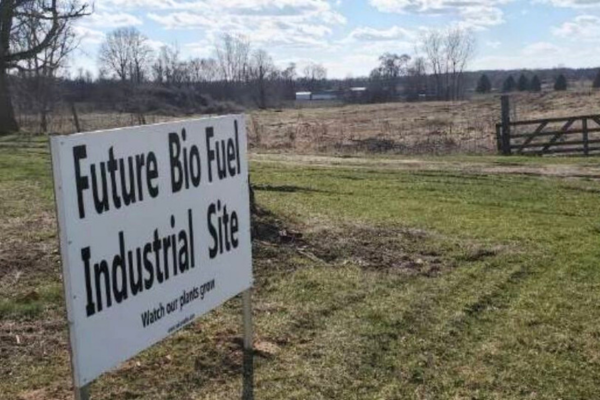By Dan Spalding
News Now Warsaw
WINONA LAKE — Nothing like the word “industrial” to make neighbors a little nervous.
That’s what happened on CR 225S near Packerton Road where residents recently noticed a sign along the road that read “Future Bio fuel industrial site.”
That was enough to lead some residents to contact the Kosciusko County Area Plan Office to see what was happening.
“I’ll admit … I was caught off guard a little bit as well,” said Plan director Matt Sandy, who was unaware of the issue and ended up fielding a few calls about the matter.
Sandy then did some research and learned the land is owned by Bob Ferguson, a well-known farmer.
As it turns out, Ferguson said he bought the tract (which was overgrown and included the remnants of a mobile home), with a plan to construct houses.
Unfortunately, Ferguson then learned that Winona Lake town officials have no interest in extending sewer to that area, which is just outside town limits.
“It’s a kind of a play on words, you know, the uninformed and inept public gets all excited. They kept asking us what we were doing so I put up a sign to explain it to them,” Ferguson said. “We stuck that up because people kept asking what’s going on and it just kept getting better and better.”
He’s still expressing frustration with the town and said he thinks officials should put “their big boy pants on” and extend the utility.
“Here we have this whimsical, wonderful quaint little town and they don’t even have the infrastructure,” he said.
Alana Gochenour, who lives north of the site in South Town Estates had noticed the sign earlier and was told about the circumstances.
“That’s a really funny joke, you know,” Gochenour said in a classic deadpan tone.
She said the town’s property tax rate has gone up in recent years and opposes the idea of expanding sewer because it would be another cost to her family.
On the bright side, Ferguson has been cleaning up the property and plans to put crops on it eventually.





